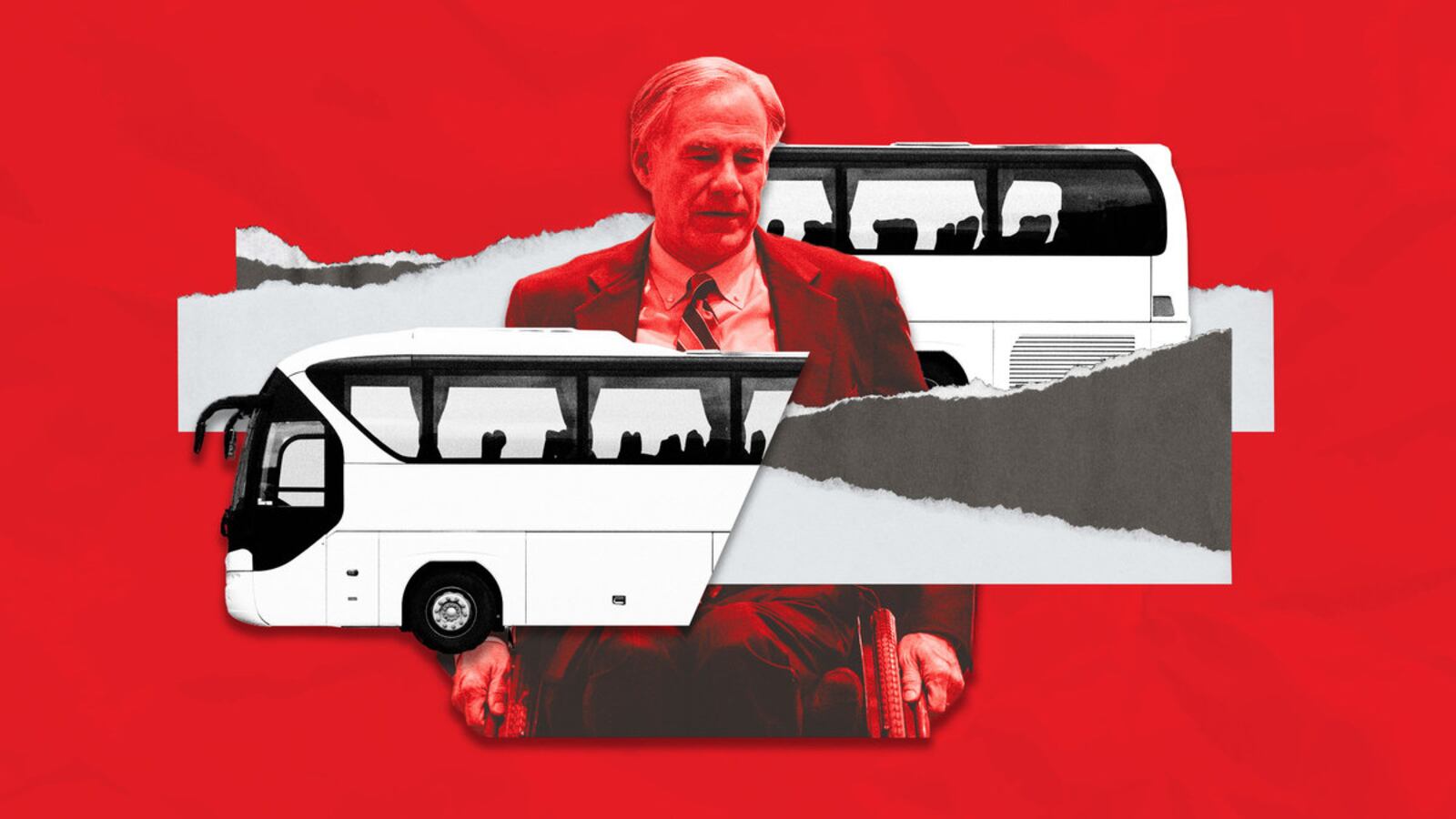Texas Governor Greg Abbott has mastered the art of performative border politics. That is great for the cartels, good for his reelection efforts, and terrible for America.
First, let’s take a quick step back.
Throughout the Trump administration there was a steady flow of migrants to the U.S.-Mexico border. In May of 2019, weeks after Trump threatened to close the U.S.-Mexico border, migrant encounters at the border soared to over 132,000, a number not seen since 2005.
Then, in March of 2020, as the country staggered through the beginning of the COVID-19 pandemic, the Trump administration utilized the CDC’s Title 42 public-health restrictions to effectively close the border to nearly anyone asking for protection. People seeking to apply for asylum were not processed and given a chance to make their case but apprehended and then expelled from the country. Importantly, those without a legitimate asylum claim were not detained and deported—because they were never allowed into the U.S. to begin with.
That was great for the cartels’ profits. Because once they realized there were no legal repercussions for people expelled under Title 42, they modified their business model and sold desperate migrants the opportunity to make multiple attempts to enter the U.S. The result was levels of recidivism that accounted for as much as 38 percent of apprehensions in some months. The average over the past two years has been 27 percent.
That makes apprehension numbers artificially high, because the numbers include repeat attempts. In fact, after Title 42 went into effect in March 2020, migrant encounters rose for 15 consecutive months.
In the end, cartels are making money, migrants are put in dangerous situations, and enforcement resources are distracted from stopping the trafficking of drugs. Title 42 has failed to deter migrants from seeking asylum protections.
Sensing an opportunity for political gain, Abbott has spent the last 18 months offering a series of expensive, ineffective, gestures.
In March 2021, Abbott launched “Operation Lone Star,” initially deploying 500 Texas National Guard members to the border. By the end of the year, the governor had massively expanded the program, sending up to 10,000 Guard members to the border—upending their livelihoods and families in the process.
Guard members have been questioning the mission. In December, the Army Times reported that at least four soldiers tied to Operation Lone Star had died by suspected suicide in the final months of the year.
Alongside this deployment that has cost more than $2 billion a year—not including an additional $531 million the Texas Military Department just requested—Abbott also tried to build his own version of a border wall.
In September, with thousands of Haitians sheltered under a bridge in Del Rio, Texas, hoping to be able to apply for asylum, Abbott was quick to build a “steel wall” of patrol vehicles. That didn’t seem to work, so a couple of months later, “Operation Steel Curtain” became a line of shipping containers along the Rio Grande.
Yet the cartels still brought migrants to the border to request asylum. So Abbott has changed course to offer those who cross the border bus rides to Washington, D.C.
That approach does nothing other than exacerbate the perception of chaos at the southern border. Which may be good politics for his reelection campaign, but is bad news for Texas, and the country at large.
After all, Abbott’s kabuki is being staged in parallel with another very real concern: a persistent and debilitating labor shortage.
Last fall, Texas small business owners told Abbott that they were at risk of failing if they could not find workers. The El Paso construction industry is struggling. Across the state, restaurants are facing labor shortages that limit operating hours. Just this March, Abbott directed the Texas Education Agency “to immediately create a task force to help school districts address the ongoing staffing shortages they face."
Immigrants could step into practically any of these industries overnight, but Abbott would rather use them as political scapegoats
Title 42 clearly is not the solution we need at the border. Ending it and implementing updated asylum policies, as the Biden administration has set in motion, is a step. But real leadership needs to come from Congress—which has absolved itself of practically all responsibility when it comes to immigration.
The quickest way to weaken the cartels, improve border security and address our labor shortage would be for Congress to work together to create legal immigration pathways. That way immigrants could pay the U.S. government thousands of dollars for safe passage instead of paying cartels for a dangerous and deadly journey. Border security resources could focus on the smuggling of drugs, guns and money, and small businesses across the country could find the workers they need.
To reform our outdated border and immigration policies, Americans need policy solutions, not political theater.






